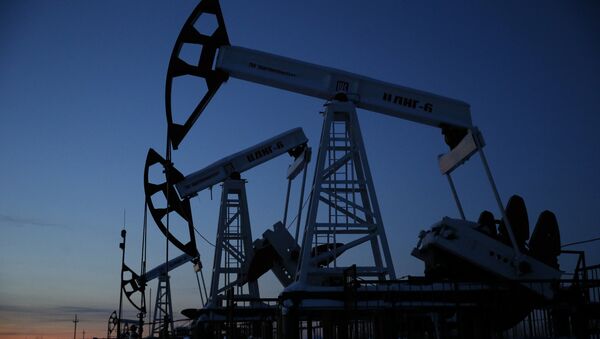According to the plant's Deputy Director for Production Development of Production, Andrey Kolosovsky, the new technology enables extraction of raw materials "almost from nothing," namely from the waste left after the production of fertilizers.
"The industrial complex Akron has already implemented the project aimed at comprehensive processing of apatite-nepheline ores and obtaining rare-earth elements from them. Cerium, lanthanum, neodymium and [other metals] are being made from the products of processing of apatite concentrate," Kolosovsky told Sputnik France.
Rare earth metals (REM) are used in various spheres ranging from high-tech to advanced defense innovations. They have a high value in the international market and cost thousands of dollars per kilogram. A country that possesses such metals or is able to produce them has, therefore, a very advantageous economic position.
Ninety-five percent of rare earth elements production is based in China, which controls the global market and dictates prices. In 2010, China sharply reduced exports and market prices soared by 5-10 times. In 2012, under the threat of WTO sanctions, it partially restored the export of REM, but the problem of REM scarcity has become apparent for many countries.
Although the production of rare earth metals in Russia makes only about 2% of world production, Russia officially has the second largest REM reserves. According to experts' assessments, in the future REM can become a major Russia's export producer alongside with oil.
"By 2020, the global demand for rare earth metals will grow by 1.5 times, reaching 190,000-200,000 tonnes a year. The key REM consumers are the countries with high-tech economies, including China (54%), Japan and South Korea (24%), Europe — mainly Germany and France (13%), and the US (8%)," Kolosovsky told Sputnik.
French expert and President of Ecole Polytechnique in Paris, Jacques Biot, also told Sputnik France that the situation in the global REM market is gradually improving due to Russia's progress in the field.
"I have an impression that the situation in the REM market is now a little bit more relaxed compared with the period of five years ago when there was a Chinese monopoly and the crisis related to it [..] I suppose that Russia's rise in the market has contributed to [the relief]. I am sure that the production conditions in Russia are excellent," Biot said.





